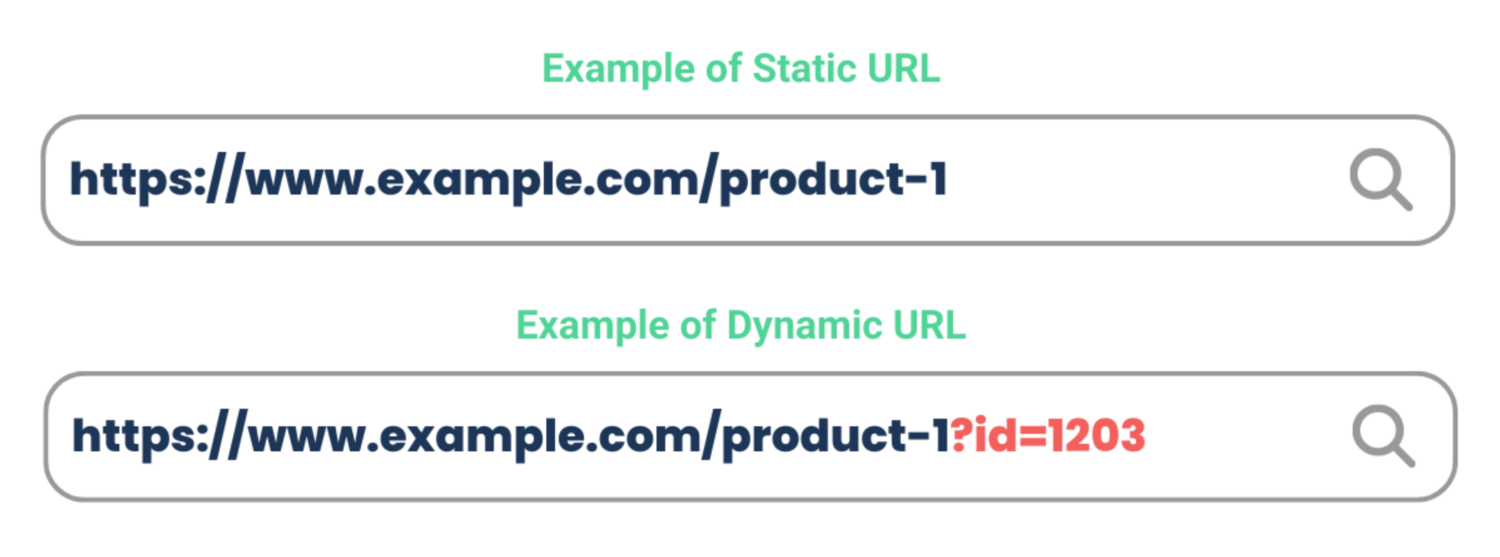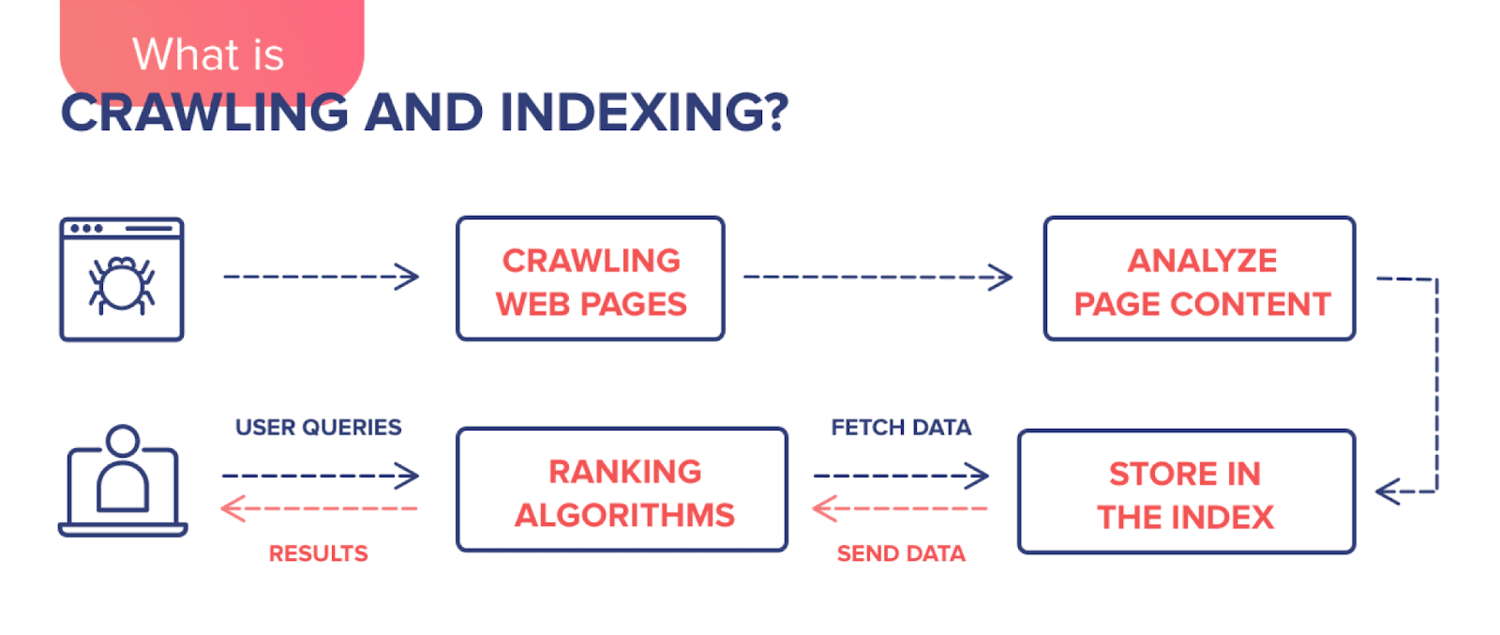In the dynamic realm of search engine optimization (SEO), every meticulous aspect contributes to success. Every detail affects a website’s search ranking, from captivating content to well-crafted meta tags. One often underestimated facet is the URL structure. Incorporating keywords into URLs significantly impacts SEO, user experience, and indexing. In this article, we’ll dive into the world of keyword-infused URLs, unveiling their potential to amplify online visibility.
In this comprehensive exploration, we’ll uncover the hidden influence of keywords in URLs on search engine optimization, user experience, and the intricacies of crawling and indexing. Discover how these unassuming character strings are key to boosting your website’s prominence.
Explore the untapped potential of incorporating keywords into your website’s URLs. Learn how this strategy not only enhances search engine rankings but also enriches the browsing experience for your users. Unravel the nuances of crawling and indexing as we reveal the mechanics behind the scenes.
Embark on a journey through the world of URLs, where each character holds significance beyond its appearance. Join us as we shed light on the pivotal role of keyword integration in URLs and empower you to make informed decisions for your online presence.
Contents
- 1 URL Shape and Search Engine Optimization: Laying the Foundation
- 2 Keywords in URLs: Unveiling the Connection
- 3 Relevance and User Experience: A Symbiotic Relationship
- 4 Crawling and Indexing: Guiding Search Engine Bots
- 5 Best Practices: Crafting SEO-Friendly URLs with Keywords
- 6 Avoiding Pitfalls: Navigating the URL Maze
- 7 FAQs
- 8 Conclusion
URL Shape and Search Engine Optimization: Laying the Foundation
URLs, or Uniform Resource Locators, are the addresses that lead users and search engines to specific web pages. They are not just a string of characters; they carry valuable information about the content of a page.
Search engines, like Google, decipher this information to understand what a page is about and how relevant it is to a user’s query. A well-structured URL can provide instant context to search engines and users, making it an essential component of SEO.
See also: Internal Linking is Super Critical for Search Engine Optimization
Keywords in URLs: Unveiling the Connection
Enter keywords – those carefully selected terms that encapsulate the essence of your content. Integrating relevant keywords into your URLs can be a powerful signal to search engines, indicating your page’s topic.
For instance, if you’re running a gardening website with a page dedicated to “roses care tips,” a URL like “example.com/roses-care-tips” instantly communicates the subject matter. This alignment between your content, keywords, and URLs can increase search engine rankings.
Relevance and User Experience: A Symbiotic Relationship
When it comes to user experience, clarity and relevance are paramount. A concise and keyword-rich URL can offer users a glimpse into the content they’re about to explore.
A user searching for tips on rose care is likelier to click on a URL that directly includes the keywords they’re searching for. This streamlined experience enhances user satisfaction, reduces bounce rates, and signals to the search engines that your content is helpful to visitors.
Crawling and Indexing: Guiding Search Engine Bots
Search engines regularly dispatch bots to crawl through the vast expanse of the internet, discovering and indexing web pages.
A well-structured URL can guide these bots with ease. A URL that includes keywords gives the crawlers a clear roadmap of what to expect on the page. This efficient navigation aids in the timely discovery and indexing of your content, ultimately contributing to quicker inclusion in search engine results.
Read also: Google Has Two Types Of Crawling – Discovery And Refresh
Best Practices: Crafting SEO-Friendly URLs with Keywords
As with any SEO strategy, there are best practices that can help you make the most of keywords in URLs:
Relevance First: Prioritize relevance over keyword stuffing. Choose keywords that accurately represent your content.
Keep it Concise: Short URLs are user-friendly and more shareable. Avoid lengthy, convoluted URLs that could confuse users and search engines alike.
Hyphens for Separation: When using multiple words in your URL, use hyphens to separate them. This improves readability for both users and search engines.
Static Structure: Aim for a fixed URL structure consistent over time. Avoid using dynamic parameters that change with each session, as they can be less SEO-friendly.
Avoiding Pitfalls: Navigating the URL Maze
While keywords in URLs offer substantial benefits, there are pitfalls to avoid as well:
Over-Optimization: Excessive keyword usage can lead to over-optimization, which may result in search engine penalties. Maintain a natural balance and avoid stuffing keywords into every URL.
Keyword Stuffing: Just as stuffing keywords into your content is discouraged, the same applies to URLs. Prioritize clarity and readability.
Changing URLs: Avoid frequently changing your URLs, as it can disrupt indexing and confuse both users and search engines if you must change URLs, set up proper redirects.
Check this out: Does URL Length Affect SEO?
FAQs
Does including keywords in URLs guarantee a higher ranking?
While URL keywords are a valuable signal, they are just one of many factors influencing rankings. High-quality content, backlinks, and user experience also play crucial roles.
Can I change my existing URLs to include keywords?
Yes, but exercise caution. Changing URLs without setting up proper redirects can lead to broken links and loss of search engine visibility. Plan the transition carefully.
How do keywords in URLs impact mobile SEO?
Mobile SEO is equally important. Short, relevant URLs are even more vital on mobile devices due to limited screen space. Prioritize concise, keyword-rich URLs for both desktop and mobile users.
Conclusion
In the vast realm of SEO, every opportunity to enhance your online visibility matters. Keywords in URLs might seem small, but their impact can be substantial. From signaling relevancy to search engines and users to aiding in crawling and indexing, incorporating keywords into your URL structure is a wise strategy.
Remember, it’s not just about including keywords; it’s about providing a clear, concise, and user-friendly experience that aligns with the intent of both search engines and your audience. So, as you craft your URLs, remember the power of these modest strings that can propel your webpage to the forefront of search engine results.





